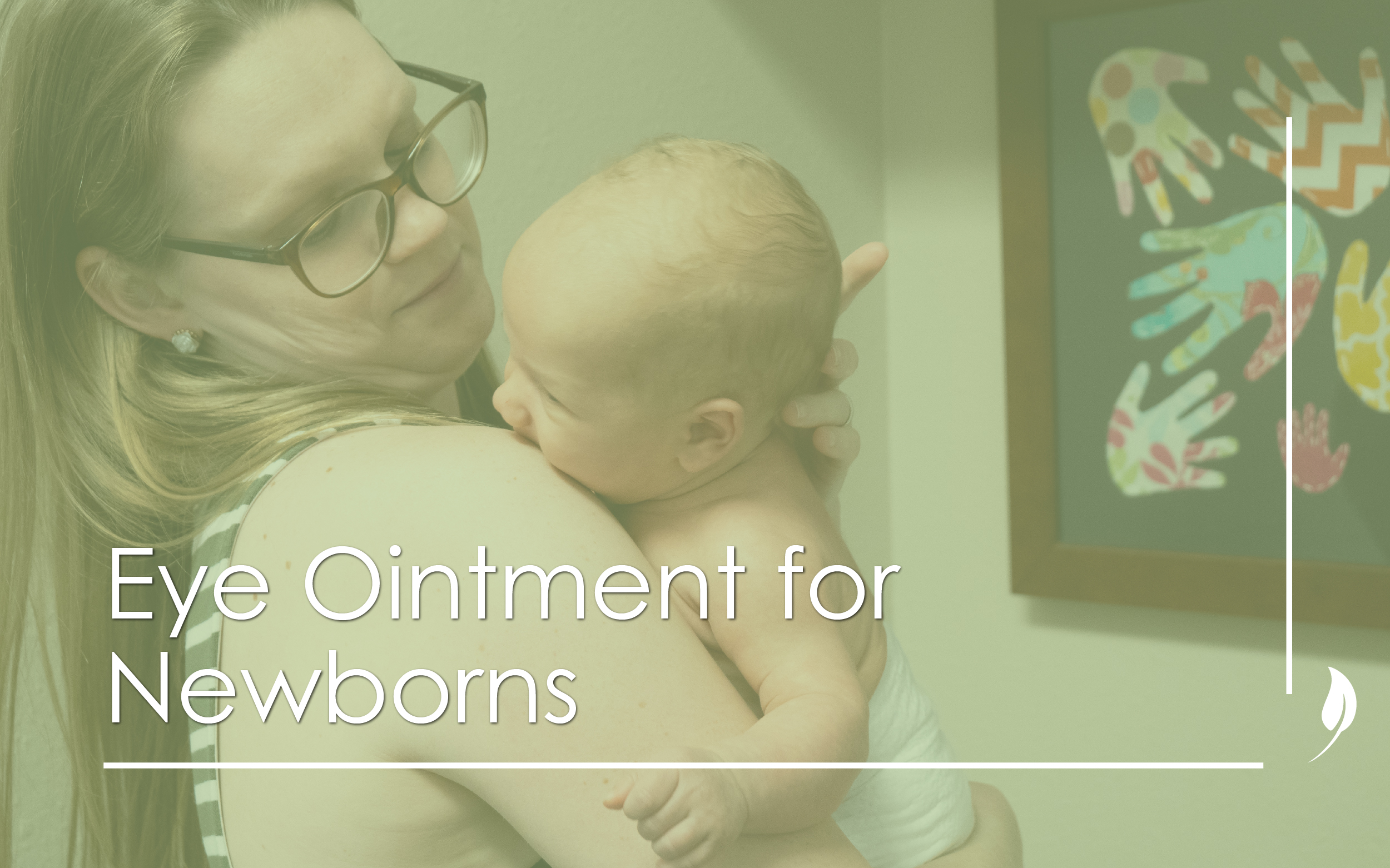Eye Ointment for Newborns
Neonatal conjunctivitis, although rare since the 1800s, can still cause a problem for some newborns. It is an eye infection caused by bacteria, viruses, or fungi. The most common of these is Neisseria Gonorrhoeae, which is an STD.
What is Ophthalmia Neonatorum (ON)?
Ophthalmia Neonatorum (ON) is conjunctivitis of the newborn that occurs within the first month of life. It is acquired during the baby’s passage through an infected birth canal.
Signs and Symptoms
If you suspect an eye infection in your baby, here are the signs you need to look out for:
- Red or pink eyes: You may notice the white area of the eyes appearing reddened or pinkish. It may indicate inflammation of the conjunctiva – a thin layer covering the eyeball.
- Eye discharge: You may notice a thick, yellow, or greenish discharge around the eye. It may also be seen crusted around the eyelids and eyelashes when your baby wakes up.
- Watery eyes: Your baby’s eyes may be excessively watery, more so than they usually are.
- Swollen eyelids: You could notice your baby’s eyelids being puffy and swollen.
- Light sensitivity: Your newborn may be sensitive to light and may get cranky on exposure to bright lights.
- Eyelid sticking: You may notice that the newborn’s eyelids are sticking together, especially after sleep, due to the presence of discharge.
- Irritability and discomfort: The baby may be irritable, and display signs of discomfort.
If you notice any of the above signs in your baby, it is essential to seek immediate medical attention ASAP. Prompt diagnosis can aid in timely treatment and is crucial to prevent complications.
What causes Ophthalmia Neonatorum (ON)?
Ophthalmia Neonatorum can be caused by various infectious agents. These include:
- Bacteria: Bacterial conjunctivitis in newborns is often caused by bacterial organisms such as Staph. aureus, Strep. pneumoniae, H.influenzae
- Viruses: Viral conjunctivitis is usually caused by viruses, such as adenovirus, herpes simplex virus (HSV), or enteroviruses.
- Chlamydia trachomatis: Chlamydia infection is an STD that can be passed from an infected mother’s vagina to her baby during childbirth. It is one of the most common reasons for neonatal conjunctivitis.
- Gonorrhea: Gonorrhea (an STD caused by the bacterium Neisseria gonorrhoeae) can be transmitted from an infected mother to her baby during delivery.
- Other microorganisms: In some cases, other infective agents, such as Mycoplasma species, can also be responsible for causing Ophthalmia Neonatorum.
Transmission of the infectious agent can occur during birth if the baby comes into contact with the infected birth canal or they are exposed to infected bodily fluids during the delivery.
In certain cases, the infection can also spread through contaminated hands, towels, or other items used in contact with the baby’s eyes.
How is Ophthalmia Neonatorum treated?
The treatment depends on the underlying cause. Here are some ways commonly used to treat ON:
- Antibiotic or Antiviral Eye Drops/Ointments: For bacterial causes of infection, we prescribe topical antibiotics or ointments. Erythromycin ophthalmic ointment is commonly used as a preventive step.
- Antiviral Medications: If the infection is caused by a viral infection like herpes, antiviral eye medications such as acyclovir are used for treatment
- Warm Compresses: Applying warm compresses to the affected eye(s) can help soothe the irritation and reduce discomfort. It is done in conjunction with antibiotic/antiviral medication.
- Eyelid Cleaning: Gently clean the baby’s eyelids and lashes with a clean, moist cloth to remove the discharge and crusting
- Systemic Treatment: In rare cases, if the infection is severe or has spread beyond the eyes, the baby may require systemic antibiotics or antiviral medications, given orally or intravenously. These are prescribed by a doctor.
Furthermore, proper hygiene practices, such as hand washing before handling the baby, and using clean, unused materials for wiping the eyes can help prevent the spread of infection to the eyes.
Is it mandatory to get eye ointment for newborns?
If the mother tests negative for an STD or another infection before delivery, the erythromycin ointment is not strongly recommended.
However, it may be mandatory in certain states as part of a mass program toward conjunctivitis prevention.
If you want to learn more about other services we provide for newborns, check out our website!















